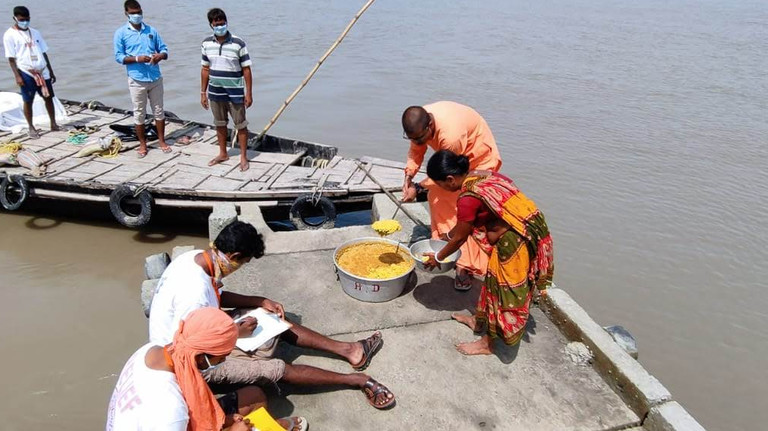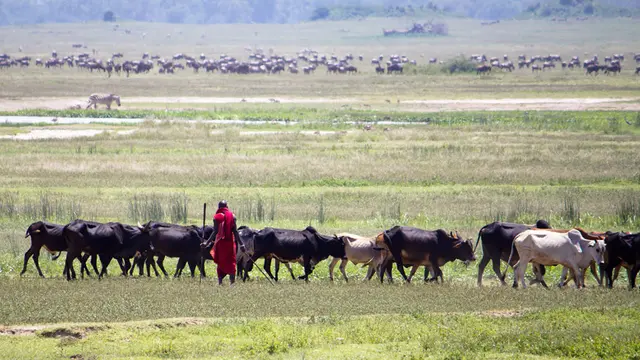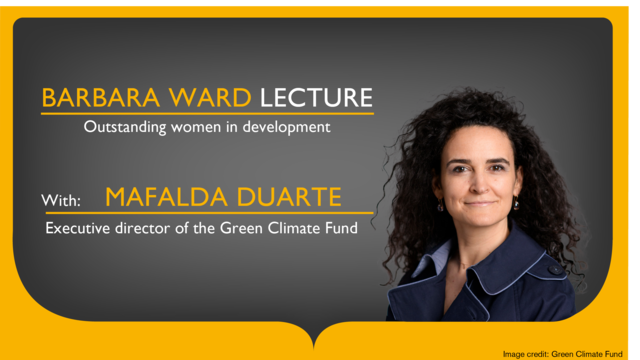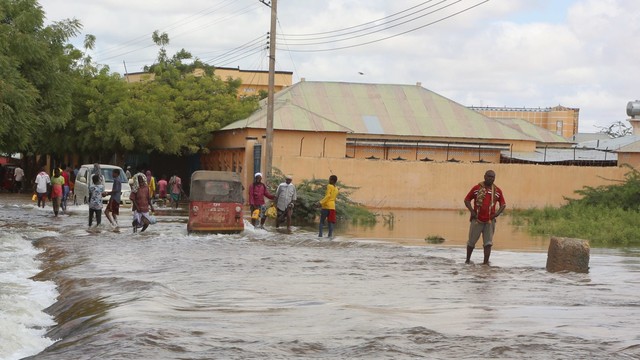Podcast: Improving climate budgeting during COVID-19
The latest episode of the People, Planet and Public Finance podcast was recorded shortly after Cyclone Amphan hit Bangladesh and India. The storm, and the damage it caused, showed the vital importance of budgeting for climate risks – even as countries confront the coronavirus pandemic.
When Cyclone Amphan hit South Asia last month it damaged the homes and livelihoods of millions of people across the region. UN officials estimate that some 10 million people in Bangladesh were affected, with half a million families potentially losing their homes. The cyclone delivered a stark message: delaying action on climate change to manage the COVID-19 pandemic is not an option.
The new episode of the 'People, planet and public finance' podcast was recorded the day after Amphan made landfall in Bangladesh. In the podcast, Farah Kabir, the country director of ActionAid Bangladesh (AAB), and Saleemul Huq, director of the International Centre for Climate Change and Development (ICCCAD), talk about their work to coordinate civil society in Bangladesh to engage with the government on climate-related budget choices.
Kabir describes how her organisation first started working on budget advocacy by looking at gender issues. Working with civil society partners, AAB has been tracking government budgets from a bottom-up perspective, to ensure that the benefits of budget allocations reach the most vulnerable people.
Saleemul Huq discusses how ICCCAD has been helping the government of Bangladesh to develop a climate budget within the national budget and to attract international climate finance.
ICCCAD and AAB joined forces to do an analysis of the Bangladesh government’s climate budget. They are also monitoring how budget allocations are being used and whether they are reaching the people who need the money most.
Huq, who is also a senior associate at IIED, says the government has been willing to engage in a positive dialogue about this work. He says NGOs, civil society organisations and academic institutions can be helpful to governments in monitoring how effectively funds are being used. In terms of accessing global climate finance, effective monitoring of funding is going to become increasingly important.

Volunteers delivering food to families affected by Cyclone Amphan in West Bengal. (Photo: Ramakrishna Math and Ramakrishna Mission via Flickr, public domain)
He adds that the COVID-19 pandemic will force governments to become more proactive; waiting for the next crisis to emerge and then reacting is no longer viable. He says the governments must act now to integrate climate change planning into national planning and budgeting, and also include environmental restoration and protection work.
People, planet and public finance
The podcast is produced by the International Budget Partnership and IIED to explore issues, ideas, and examples of promising work at the intersection of people, the planet and public finance.
The previous episode looked at how government and non-government institutions in Senegal, Mali, Tanzania and Kenya were exploring how best to get funding for sustainable climate investment to the local level. IIED researcher Emilie Beauchamp and Bara Gueye, former director of IED Afrique in Senegal, discussed their work to design a robust and inclusive mechanism for investing climate adaptation.
Another episode discussed how much people in Bangladesh are spending to address climate impacts. The recording featured IIED chief economist Paul Steele and Shaikh Eskander, from the Grantham Research Institute on Climate Change and the Environment at the London School of Economics, who authored the report 'Bearing the climate burden: how households in Bangladesh are spending too much', which analyses how much poor rural households in Bangladesh are paying to deal with climate change.


